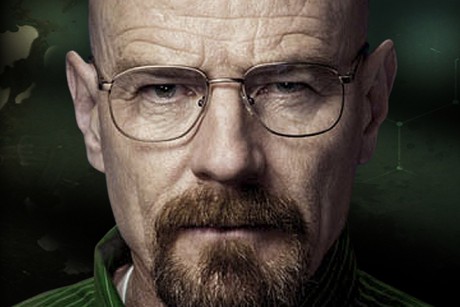
Imagine you if you had a violent drug dealer chained to a pole in your basement – the result of circumstances that got out of control. You have two choices: let the guy go after he promises not to take revenge for having him chained in your basement, or kill him. This is the dilemma faced by Walt, a high school chemistry teacher who begins cooking meth when he finds out he has late stage lung cancer. Walt and Jesse (his former student and drug dealing partner) flip a coin – the loser has to deal with the “problem” in the basement. Walt loses and the camera shows him sitting at a table with a notebook. On it he has written two columns – the first one has all the reasons why he should let the guy in the basement go. The second has all of the reasons he should kill him. It’s a powerful scene in part because of the way the two columns appear. In the “let him live” column we see a long list of the basic moral maxims we would expect – “Killing is wrong,” “Killing goes against the Judeo-Christian ethic”, etc. – a full list of reasons we might even give right here on this blog to argue against various forms of violence. But, then, it’s easy to talk about such things abstractly – with no “skin in the game.” In Breaking Bad Walt has much to lose. The scene is powerful because it shows him wrestling – angst ridden over the choice he has to make. He’d never killed anyone before, how could he justify doing it now – even if he was involved in something illegal like drug dealing? The camera goes on to show the other column – the “I should kill him” column. There we find only one entry:”He will kill my family.”
What draws me to shows like Breaking Bad, The Sopranos, as well as Quentin Tarantino movies, is that they try to speak to the morality of evil – erasing the simplistic lines we often draw to separate “good” from “bad.” In The Wire the difference between the “gangs” and the “politicians” is often difficult to discern. Pulp Fiction gives us a window into the conversations of hired killers on their way to do a job – discussing the finer ethical points of when it’s ok to give a foot massage. In Breaking Bad we encounter Walt – a 50 year old teacher who is just trying to provide for his family before he dies. All of these stories give us complex characters with complex choices – blurring the lines between right and wrong. I mean, we shouldn’t pull for Walt or Jessie, right? They’re cooking meth…
It makes me wonder about the morality of the Christian community and how we draw our lines of “good” and “bad.” We never just draw lines – we go on to construct vast networks and power structures based upon the cultural standards of what’s acceptable and what’s frowned upon. How easy it is for us to forget that Christianity isn’t really about being moral – it’s about a radically new way of being in the world. According to Paul (at least how I read him in I Corinthians) the Christian faith is not about establishing hard and fast rules to determine “in” and “out” – it’s about cultivating a posture of charity (love) towards those who are different. This is why I enjoy Breaking Bad – the moral complexity. Don’t get me wrong, there have been many times as the story unfolds when I’ve been appalled at the actions of Walt and Jesse. It is after all Breaking BAD. But the truth is – and I think Paul (or was it John Calvin?) makes this point well – sometimes I get the same feeling when I look in the mirror.

